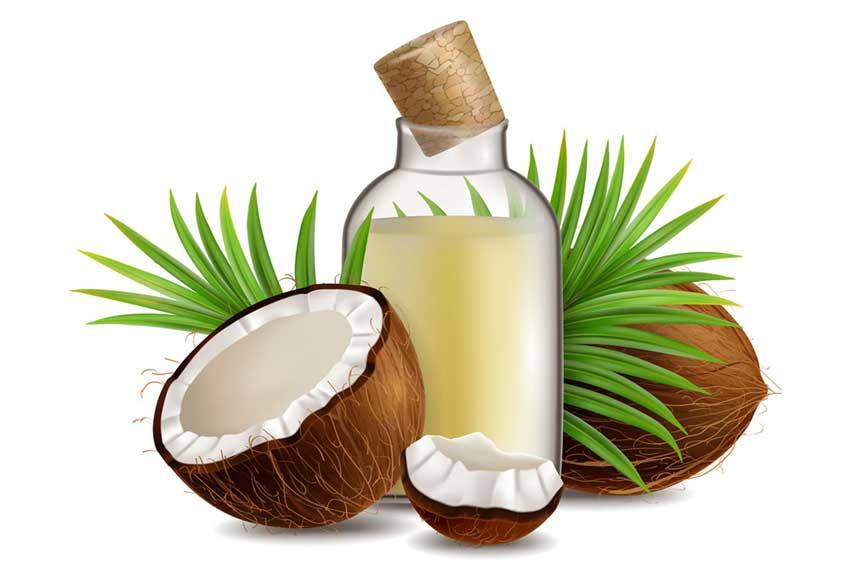01 Apr 2021 - {{hitsCtrl.values.hits}}

 We are aware that this toxin is present in other foods as well. We are not a regulatory body, so we can only inform the Import Export Controller to blacklist these items and traders
We are aware that this toxin is present in other foods as well. We are not a regulatory body, so we can only inform the Import Export Controller to blacklist these items and traders
With an investigation underway to determine, if substandard coconut oil contaminated with high levels of carcinogenic Aflatoxin has reached consumers, the government is deliberating legal action against the traders involved in the controversy.
 While some sceptics argue that the coconut oil controversy is an attempt to drive consumers towards palm oil, some members of the ruling party have signalled that the controversy is an attempt to tarnish the reputation of the government. Chief Government Whip Johnston Fernando said in case consignments of substandard coconut oil were detected, they would be re-exported or destroyed. He said such incidents have been reported in the past as well.
While some sceptics argue that the coconut oil controversy is an attempt to drive consumers towards palm oil, some members of the ruling party have signalled that the controversy is an attempt to tarnish the reputation of the government. Chief Government Whip Johnston Fernando said in case consignments of substandard coconut oil were detected, they would be re-exported or destroyed. He said such incidents have been reported in the past as well.
During a media briefing on the controversy, the Sri Lanka Standards Institute Director General Dr. Siddhika Senaratne pointed out that re-export of these consignments cannot be carried out overnight, and is likely to take some time. The Sri Lanka Standards Institute submitted its final report to the Customs Director General on March 29. It contained the report on the second sample test carried out on coconut oil consignments imported by four companies. The tests were to determine whether the oil contained the carcinogen Aflatoxin.
What are aflatoxins?
Aflatoxins are a family of toxins produced by certain fungi which are abundant in warm and humid regions. They can contaminate food stocks as well as crops in the field at harvest time and during storage. Consumption of food contaminated with these toxins pose serious health risks to humans. According to the World Health Organisation some 25 per cent or more of the world’s food crops are destroyed annually because Aflatoxin contamination. Acute high level exposure can progress to potentially lethal hepatitis with symptoms of vomiting, abdominal pain, jaundice, fulminant hepatic failure and sometimes death.
The initial tests carried out by the SLSI revealed that three out of the four importers had imported oil containing Aflatoxin. Upon receiving the report the Customs Director General said the relevant companies were advised to prepare to re-export the stock of coconut oil.
However, at the media briefing, journalists questioned if the public can maintain faith in the SLSI as several conflicting reports stated that the oil had already reached consumers. “We can assure that the organisation is well regulated and all our staff, including sampling officers are well trained. We have SOPs for each part of the process,” Dr. Senaratne assured adding that samples are taken round the clock for any consignment of goods received by the authorities. “For example we remove the labels before taking samples from tins of canned fish. We assign them a new number before they are sent to the lab. Therefore it’s a blind test and cannot be rigged by our employees,” she said and added that except for SLSI staff all others are prohibited from entering the labs to ensure maximum transparency.
 Media erroneously reported that these trucks were sealed by the Customs. It’s a serious charge against the Customs and I’m not sure why such an allegation was made. So I must clarify that the trucks did not carry a Customs seal
Media erroneously reported that these trucks were sealed by the Customs. It’s a serious charge against the Customs and I’m not sure why such an allegation was made. So I must clarify that the trucks did not carry a Customs seal
Is it only coconut oil?
With recent reports that stocks of turmeric and now coconut oil, which were deemed unsuitable for human consumption, the SLSI has been making headlines recently. Responding to a question by a journalist, Dr. Senaratne said they have recently been made aware of Aflatoxin present in other foods which are imported to Sri Lanka. “We are aware that this toxin is present in other foods as well. We are not a regulatory body, so we can only inform the Controller of Imports and Exports and it’s up to him or her to blacklist these items and traders,” she said.
Dr, Senaratne said there were 121 toxins and other harmful ingredients which they were checking for in foods and cosmetics and that this list would be expanded in the future. “A number of problems with electrical items which are imported have also been brought to our attention. We expect the publication of a gazette soon to regulate some of these areas,” she said.
When asked if the certification and standardization could be extended to other goods in the market, Dr. Senaratne said the institute did not have the mandate to do so. “The SLS certification is not a difficult one to obtain. But it is a voluntary process. The goods which receive our certification have been those submitted voluntarily by manufacturers and traders. It means that the producers and manufacturers are willing to give the consumer a good product. What the government can do is to make the SLS logo mandatory which allows us to audit the entire process of manufacturing or prior to releasing products to the market. If the products are of poor quality they will not be released to the market,” she said. “After a preliminary audit, we will guide them along the way. It’s not something that can be done overnight. We will guarantee that the process and quality is consistent for the products. This will give the product a competitive edge among other benefits.”
 Earlier substandard coconut oil stocks were detected as small containers and that too sporadically. Therefore I deny the allegation that we didnt carry out necessary tests. Even back in 2019 we have given the recommendation to re-export containers of oil
Earlier substandard coconut oil stocks were detected as small containers and that too sporadically. Therefore I deny the allegation that we didnt carry out necessary tests. Even back in 2019 we have given the recommendation to re-export containers of oil
Customs investigations underway
Speaking at the media briefing on the controversial consignment of carcinogenic coconut oil, Customs Director General (Rtd) Major General G. Vijitha Ravipriya said the two bowser trucks allegedly containing substandard coconut oil was seized and handed over to the Customs Authorities this morning.
Two trucks were seized by the Dankotuwa Police on Tuesday following a tip-off that the trucks contained substandard oil. “I myself inspected the two bowsers in Dankotuwa today. The bowsers were brought to the Customs under police protection this morning. The two bowser drivers were also arrested and statements recorded from the proprietors of the land the trucks were hidden in and the traders who are responsible for importing the oil,” he said.
The bowsers have not been opened yet, as we have to follow due procedure. However after the legal procedures have been completed we will investigate whether the bowsers contain crude oil, substandard oil or any other content. As the bowsers were found in Dankotuwa we may have to be vigilant of other concerns as well,” Mr. Ravipriya said.
He said some of the 27,500 litres of coconut oil coconut oil seized by the Police would be sent to the Government Analyst for testing. “Media erroneously reported that these trucks were sealed by the Customs. It’s a serious charge against the Customs and I’m not sure why such an allegation was made. So I must clarify that the trucks did not carry a Customs seal. The seal belongs to the private companies which handled these stocks,” Mr. Ravipriya said.
Rise of substandard oil imports
“The three companies which are involved in this issue were Ali Brothers, Edirisinghe Edible Oil and Katana Refineries. We are only aware of these companies at the moment, but we would investigate other traders if the need arises,” he added.
The government officials went on to explain that instances of substandard crude oil being imported have risen in the recent past. “Earlier substandard coconut oil stocks were detected as small containers and that too sporadically. Therefore I deny the allegation that we didn’t carry out necessary tests. Even back in 2019 we had directed that containers of oil be re-exported,” Dr. Senaratne said. “Earlier more palm oil was consumed by Sri Lankans. By June the tax was waived, with the view to increase coconut oil consumption in the country,” the Customs Director General said. “Aflatoxins however have not been recommended to be regulated. For instance the same can be applied for chillies, not just coconut oil. The question therefore is
about regulation.”
27 Nov 2024 45 minute ago
27 Nov 2024 2 hours ago
26 Nov 2024 26 Nov 2024
26 Nov 2024 26 Nov 2024
26 Nov 2024 26 Nov 2024